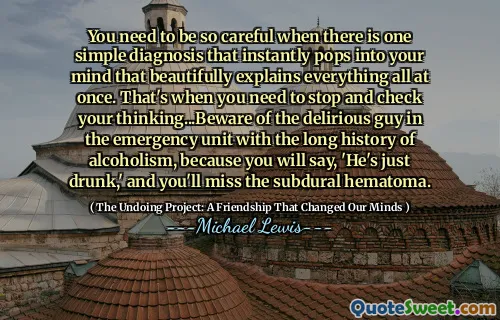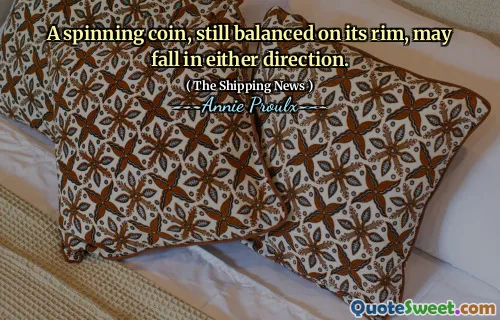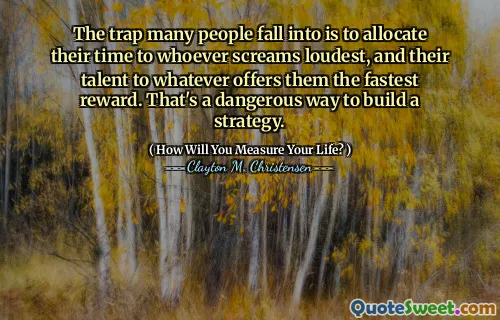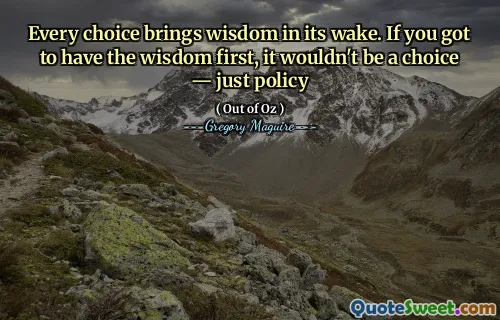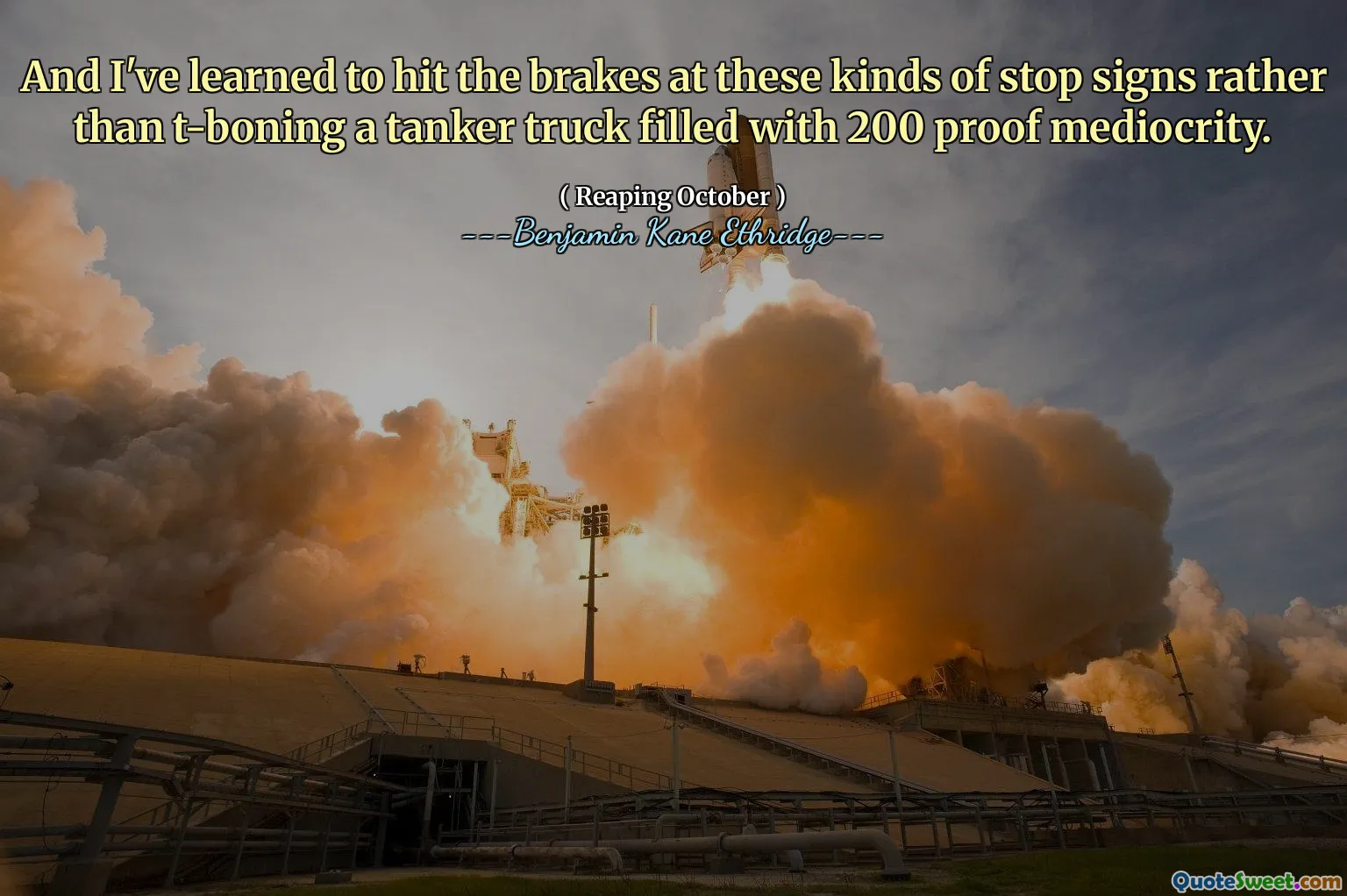
And I've learned to hit the brakes at these kinds of stop signs rather than t-boning a tanker truck filled with 200 proof mediocrity.
This quote vividly captures the importance of caution and discernment in life. The metaphor of hitting the brakes at stop signs symbolizes the wisdom of pausing and evaluating situations before proceeding, especially when there's a risk of harm or mediocrity overwhelming potential. The imagery of T-boning a tanker truck filled with 200 proof mediocrity suggests an abrupt, destructive collision with something dangerously intoxicating and unremarkable — a warning against reckless pursuits or blind acceptance of mediocrity. It resonates with the idea that more often than not, it's wiser to slowdown, second-guess, or hold back when circumstances are ambiguous or potentially harmful, rather than rushing headlong into consequences we might regret.
From a broader perspective, this reflects the necessity of self-awareness and the judgment to recognize what serves our growth versus what might cause stagnation or harm. Our environments, relationships, or decisions sometimes push us to accelerate without regard for the outcomes, but learning to 'hit the brakes' empowers us to avoid recklessness. Amid modern life's constant rapid pace, this quote reminds us of the value in restraint, reflection, and choosing mindful paths over impulsiveness.
The imagery of mediocrity also encourages a healthy skepticism about settling into comfort zones that offer little genuine fulfillment. Instead, it advocates for a cautious approach that seeks meaningful progress and avoids the trap of complacency. Incorporating this mindset can foster resilience and better decision-making, ultimately steering us away from destructive collisions both literally and metaphorically.
In essence, this quote serves as a reminder that wisdom often lies in restraint—knowing when to move forward and when to hold back is key to navigating life's complexities with minimal damage and maximal growth.

